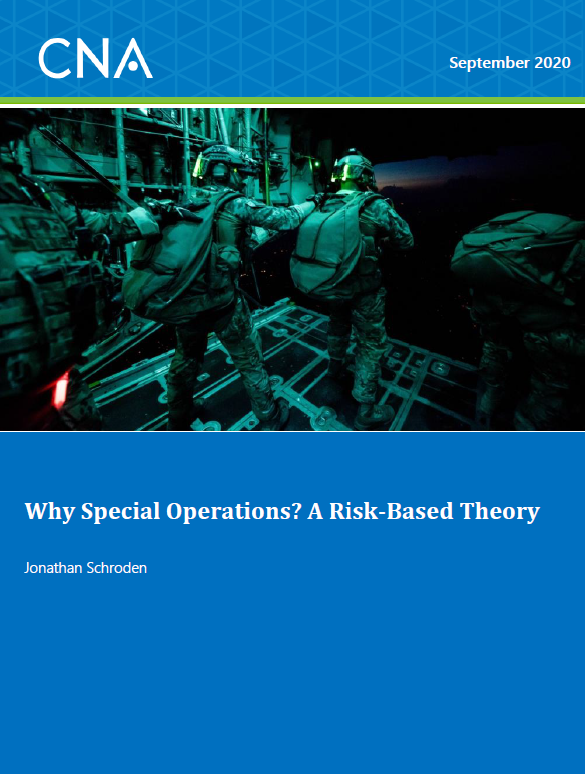In 1993, then-Commander William H. McRaven submitted a thesis to the Naval Postgraduate School titled “The Theory of Special Operations,” in which he advances a theory to explain why special operations succeed. Although McRaven’s theory has since been the subject of some criticism, it has also inspired a cadre of authors to craft their own theories of special operations. There is today a burgeoning discussion in the literature as to what really constitutes a “special operation,” what makes the forces that conduct them “special,” whether these aspects are so different from conventional military operations and forces as to warrant their own theory, and, if they do, what such a theory should be. In this paper, I add my thoughts to this theoretical discourse. In particular, I address an aspect of special operations that has yet to be explained adequately—the question of why special operations are conducted. Given that they are inherently dangerous endeavors—one author described them as “handfuls of heroes on desperate ventures”—one has to wonder why special operations are ever undertaken.
The answer lies in the consideration of risk. Because policy-makers are inherently reliant upon some form of popular support to maintain their positions of power, they are also inherently averse to taking risky actions. Thus, when considering solutions to various policy problems, they will seek and select the options that present the lowest overall risk. Here, risk can take a number of forms, but I focus on two: risk of failure in resolving the policy problem, and risk of blowback. Regarding the first, leaders naturally want their decisions to resolve problems facing them and their organizations, and they are sensitive to various options’ likelihood of effectively doing so. They weigh the probability of success (or risk of failure) in deciding which potential solution to choose. Regarding the second, leaders typically want to remain leaders, and thus they weigh the possibility of blowback (from both popular audiences and bureaucratic organizations) from their decisions as part of their decision calculus. The centrality of risk to policy decisions leads directly to this definition: Special operations are unorthodox military solutions to difficult policy problems that lower the level of risk to policy-makers.
Download reportDISTRIBUTION STATEMENT A. Approved for public release: distribution unlimited. 9/18/2020
Details
- Pages: 52
- Document Number: COP-2020-U-028160-Final
- Publication Date: 9/18/2020
